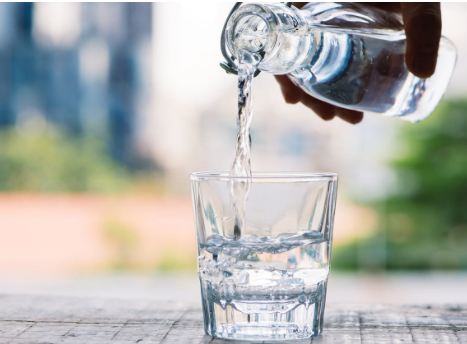ISLAMABAD, JAN 19 (DNA) — With federal capital’s population surpassing two million, the natural resources available for the city are getting under severe stress as citizens have to face issues like water scarcity, waste disposal and roads infrastructure.
The citizens are worried about uninterrupted supply of water for domestic use especially clean drinking water as contaminated water in most parts of the country had already resulted in ailment of millions of Pakistanis with Hepatitis, Diarrhea and other stomach related diseases.
Although the Capital Development Authority (CDA) continuously remains on its toes to meet growing water demands of citizens, many residents of Islamabad believe to expand this network across the Capital Territory.
Keeping in view the density of the underground water, the Authority has installed water filtration plants at various locations to facilitate residents and save them from water borne diseases.
The Authority is presently operating over 100 filtration plants in settled sectors of Islamabad. But, the situation in some adjacent areas yet needs improvement where these plants are managed by the representatives’ local governments.
Despite scattered complaints about hygiene and cleanliness, overall situation is stated to be better than three, four years ago.“This is a noble endeavor by CDA as clean drinking water is requirement of every individual,” said Kashif Munir, a resident of sector G-10. “But, the Authority needs to fully cognizant of fulfilling health and hygiene standards at these plants.”
Claiming about lesser efficiency of filtration plants in Sabzi Mandi, G-10/3 and I-9, Kashif drew attention of the Authority towards proper maintenance of these plants.
“Some plants are in poor condition with water leakage becoming a routine matter,” he said. “These plants need proper supervision and security and timely repair and maintenance to control water wastage and keep the places clean.”
As contaminated drinking water poses serious health hazards and ailment and death sometimes, there is dir need for policies to ensure clean drinking water for all.Such initiative would not save the precious money of citizens being incurred on curing water borne diseases but also help save this precious resource for coming generations.
Qasim Khan, a resident of I-9 has also mentioned to problems like delayed repair of poorly performing plants as well as their capacity to cater the needs of people.“The Authority must comply with the protocols of cleanliness, repair and upgradation of these plants to make the citizens fully benefit from this facility,” he suggested.
“Sometimes the ground staff keeps oblivious to maintenance that worsens the situation,” he said. “Therefore, periodical maintenance and checking water quality was imperative.”He observed that at some plants the taps were insufficient to meet masses needs. “At such plants people have to wait for inordinate amounts of time to get water because of the lesser taps.”
On the other hand, the officials of Capital Development Authority claim that Water Supply Department of CDA takes all necessary steps to ensure supply of clean drinking water in the city.
“We are presently running over 100 filtration plants operated by designated staff. This figure is three times higher what we had on ground four years back,” the official claimed.
“With the construction of more filtration plants in Islamabad, we have ensured that clean drinking water is easily available to the citizens,” he remarked.He informed that filtration plants in all sectors of Islamabad are operational and people are fully benefitting from this facility. “Our senior staff and officials randomly inspect these plants to monitor their performance. The area is cleaned and the filters are replaced in time.”
He said the tests of water supplied from these plants are conducted every month by PCRWR and the CDA laboratory to ensure that contaminants are properly removed and healthy and safe water is provided to citizens.“To avoid rush at these plants, we have now started them operating round the clock,” he said. “Now it is up to their convenience as when can come to these facilities for getting water.”
He also mentioned to CDA’s collaboration with NGOs to continuously monitor water quality and proper maintenance of the plants. “The CDA has also appointed focal persons in every sector to address citizens’ complaints about these plants.”
Due to contaminated water resource in the catchment areas as well as heavy density of minerals in the ground water, there is an urgent need for regular testing and verifying of all drinking water sources through effective mitigation measures.
Simply by doing this, we can save extra money spent on water borne diseases, control wastage and conserve our precious resource to provide healthy environment to our people. — DNA

















